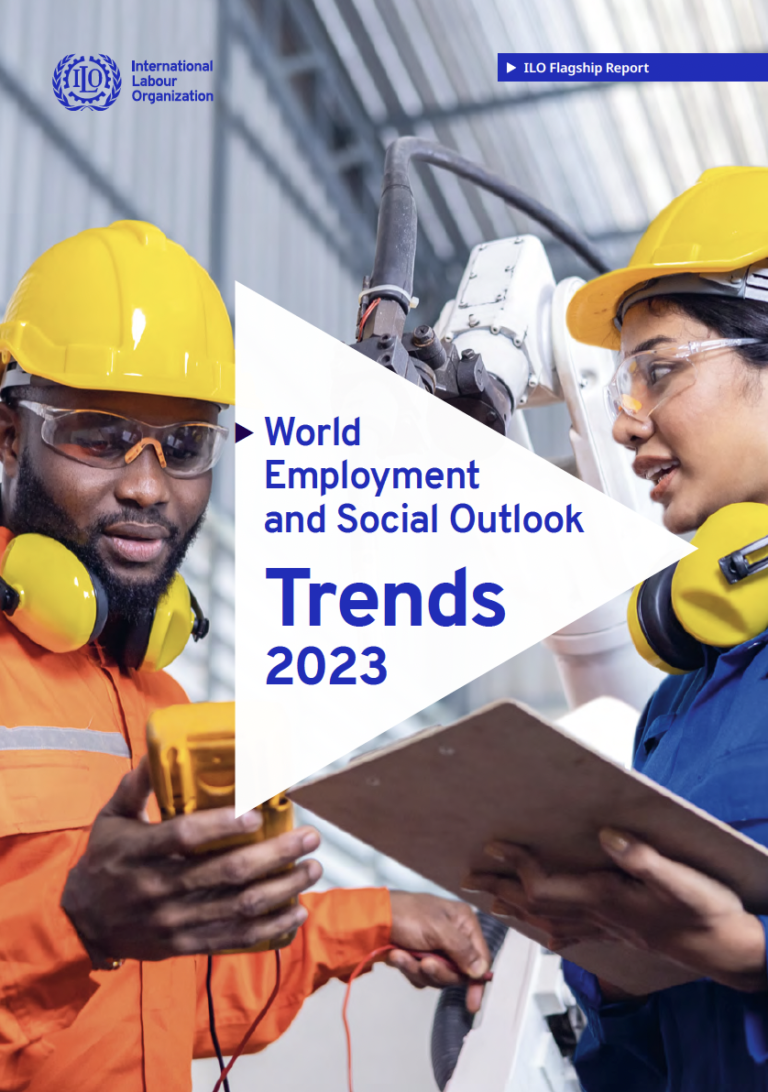This year’s World Employment and Social Outlook: Trends provides a comprehensive assessment of current decent work deficits and how these have been exacerbated by multiple, overlapping crises in recent years. It analyses global patterns, regional differences and outcomes across groups of workers. The report provides labour market projections for 2023 and 2024 and presents trends in labour productivity growth, analysing the factors contributing to its decline.
By the end of 2022, the recovery from the COVID-19 crisis was still incomplete and highly uneven across the world, particularly in low income and middle-income countries, and was further hampered by the consequences of the conflict in Ukraine, accelerating climate change and unprecedented humanitarian challenges. Projections of a slowdown in economic and employment growth in 2023 imply that most countries will fall short of a full recovery to pre-pandemic levels in the foreseeable future. Worse still, progress in labour markets is likely to be far too slow to reduce the enormous decent work deficits that existed prior to, and were exacerbated by, the pandemic. Lack of access to employment, poor job quality, insufficient pay and major inequalities are only some of the challenges that undermine social justice. The globally observed slowdown in productivity growth is likely to make those challenges even more difficult to address.
In times of crisis, international solidarity is more critical than ever. A new global social contract is needed to narrow the existing deficits in decent work and social justice. To this end, in 2023 the ILO will launch a Global Coalition for Social Justice aimed at strengthening global solidarity and improving policy coherence, in order to bring about action and investment for decent work and social justice.
More than ever, the convergence of crises and the associated uncertainties are fuelling the sources of inequalities and undermining the already endangered social contract. Beyond the individual human tragedies they have caused, and their impact on the world of work, these crises have highlighted the interlinkages and dependencies of economies and societies around the world and have shown the crucial need for concerted, coordinated action at all levels. We need both awareness of the necessity to act and new ways of translating this awareness into resolute action without further delay.

